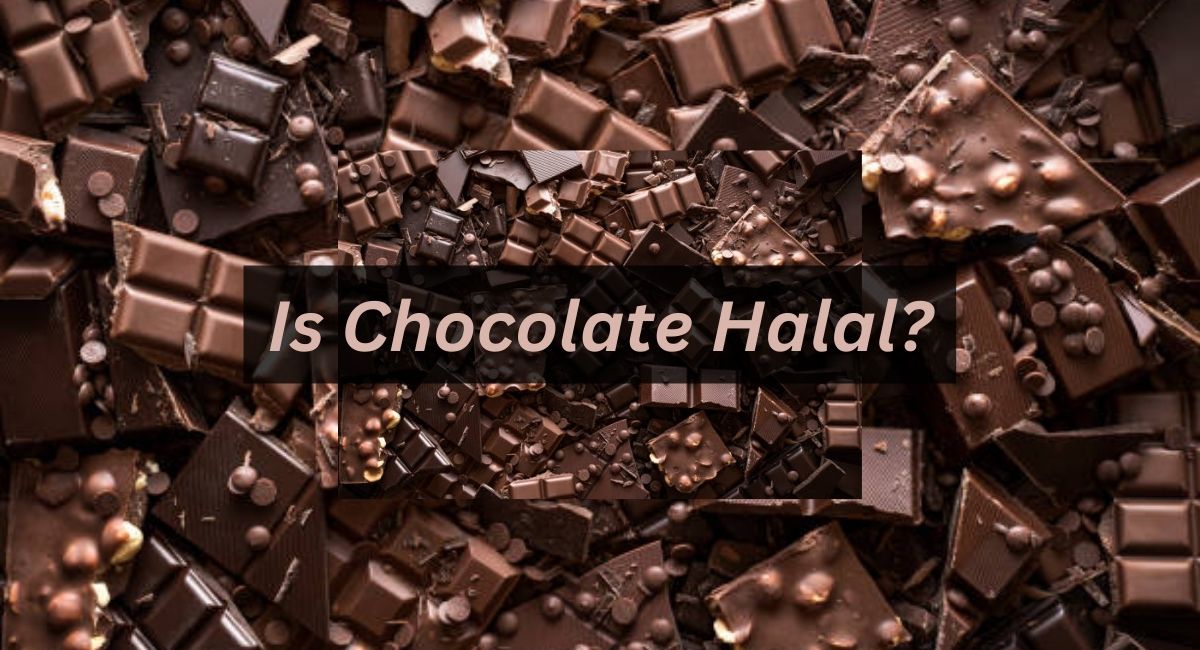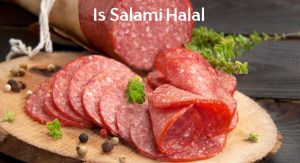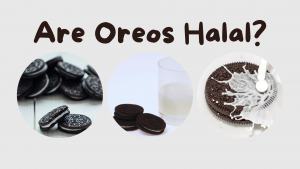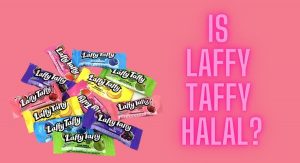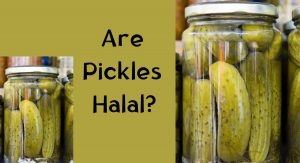Chocolate is a beloved treat enjoyed by people around the world. But for those who practice Islam, there’s one very important question to consider: Is chocolate halal? The answer isn’t as simple as it seems, and this blog post will delve into the complexities of determining whether or not consuming chocolate is permissible in Islamic law.
Additionally, we will provide some useful tips on how to make sure the chocolate you purchase is halal and acceptable for consumption. So if you have been wondering whether it’s okay to indulge in your favourite sweet treat, read on! We hope this article helps answer your questions and puts your mind at ease.
Everything About Chocolate
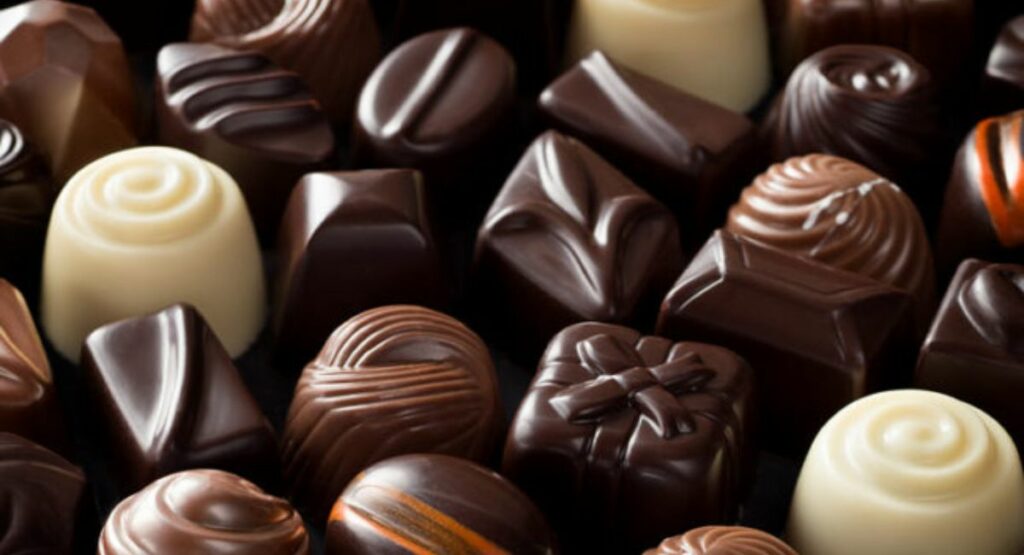
Chocolate is a beloved treat that spans cultures and ages. Its history goes back centuries, with evidence of chocolate consumption dating as far back as the pre-Columbian Mesoamerican civilizations. It has been used in religious ceremonies, exchanged between lovers, and sought after by indulgers worldwide. From cocoa beans to craft bars, chocolate is a delicacy enjoyed in many forms.
Cocoa beans are the foundation of chocolate. Cocoa beans are derived from cacao trees which grow exclusively 15-20 degrees north or south of the equator. Cacao trees are unique in that they produce pods filled with cocoa beans and pulp. The process of making chocolate begins with harvesting the pods and extracting the beans. The beans are then cleaned, roasted, and ground into a paste called chocolate liquor.
This liquor is further processed to extract cocoa butter and cocoa powder. Depending on whether it’s milk or dark chocolate, the recipe will specify additional ingredients; milk chocolate typically contains milk solids while dark chocolate often has a higher cocoa content. The ingredients are blended together until they form a smooth mass, which is then formed into bars or other shapes as desired.
Chocolate comes in many forms and flavours, appealing to every palate. Milk chocolate is the most popular type of chocolate, made with sugar and milk solids in addition to cocoa butter and powder. Dark chocolate is a more intense flavour, made with cocoa butter and powder but without milk solids. White chocolate is another popular type, containing cocoa butter and sugar but no cocoa powder. There are also flavoured chocolates such as mint or coffee, as well as various types of truffles, bonbons, and other confections.
Today, chocolate remains a popular indulgence and has even become a symbol of luxury for many. From mass-market brands to artisan chocolates, there’s something for everyone to enjoy. Whether it’s gifted as a token of love or shared between friends, chocolate is sure to bring a smile to anyone’s face.
Chocolate is a beloved treat that has been enjoyed for centuries and will continue to remain a staple in the modern day. Its versatile flavours make it an ideal gift or snack, and its luxurious nature adds a special touch of decadence to any occasion. Whether you’re gifting it as a token of appreciation or savouring it as a treat, chocolate is sure to bring joy and satisfaction.
For centuries people have been enjoying the delicious taste of chocolate with its unique flavour profiles and texture. Chocolate has transcended cultures and ages, becoming one of the most beloved treats in the world. From cocoa beans to craft bars, chocolate comes in many forms and flavours, appealing to every palate.
With its luxurious nature, chocolate is sure to bring joy and satisfaction no matter the occasion. The next time you’re looking for a special treat, reach for some chocolate – you won’t be disappointed!
The fascinating history of chocolate is as rich and diverse as the flavour profiles that it offers. It has spanned centuries and continents, used in religious ceremonies and exchanged between lovers worldwide. Whether you’re indulging in a bar of mass-market chocolate or savouring an artisan truffle, chocolate is sure to bring a smile to anyone’s face.
With its luxurious nature, chocolate continues to be a beloved treat that has been enjoyed for generations and will continue to do so for many more. So next time you’re looking for something special, reach for some chocolate – you won’t be disappointed!
What Is Chocolate Made Of?

Chocolate is a delicious treat that comes in many varieties and flavours, but all types of chocolate are made from the same basic ingredients. The foundation of any type of chocolate begins with cocoa beans, which are roasted and then ground into a paste known as cocoa mass or cocoa liquor. This paste is blended with other ingredients to form various types of chocolate. To make milk and white chocolates, additional ingredients like cocoa butter, sugars, lecithin and milk powder are typically added.
Ingredients in Chocolate:
- Cocoa beans
- Cocoa mass/liquor
- Cocoa butter
- Sugar
- Lecithin
- Milk powder
- Flavouring (such as vanilla)
- Other additives (such as nuts, candies, etc.)
- Emulsifiers (such as soy lecithin)
- Cocoa solids or cocoa powder (for dark chocolate)
- Salt (for dark chocolate)
- Vegetable fats (in some chocolates)
- Milk solids (in milk chocolate)
- Flavourings (such as vanilla extract or mint oil).
Additionally, different types of chocolate have different proportions of ingredients, which is what gives them their distinct flavour and texture. For example, dark chocolate contains more cocoa solids and less sugar, while milk chocolate contains more sugar and fewer cocoa solids. White chocolate, on the other hand, does not contain any cocoa solids, as it is made with only cocoa butter, sugar, lecithin and milk powder.
Overall, no matter what type of chocolate it is, all chocolates are created with the same basic ingredients. These ingredients are combined in various proportions to create different flavours and textures.
Are There Any Haram Ingredients In Chocolate?
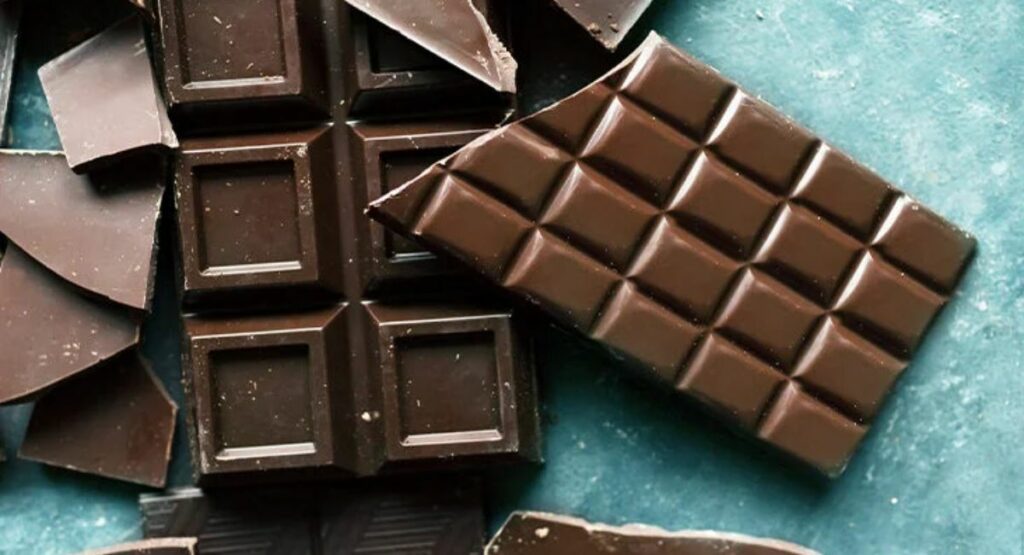
No! Chocolate does not contain any ingredients that are considered haram by Islamic law. However, many types of chocolate products may be produced with haram additives such as gelatin or alcohol which can make the product impermissible to consume. For this reason, it’s important to check the labels of products and look for halal-certified chocolates when purchasing them.
Additionally, Muslims should be aware that some chocolate products may contain traces of non-halal animal fats or other non-halal ingredients which could make them impermissible to consume. Therefore, it is important to check the labels carefully before consuming any type of chocolate product.
Chocolate can also be produced with cocoa butter as a substitute which is considered halal and therefore permissible to consume. Additionally, the presence of dairy products in some chocolate products can make them impermissible for those who observe halal dietary laws. It is important to check the labels to ensure that no dairy-based ingredients are present before consuming a product as this could lead to it becoming non-halal.
In summary, chocolate does not contain any ingredients that are considered haram by Islamic law. However, it is important to check the labels of products as some may contain additives or traces of non-halal animal fats or other non-halal ingredients which could make them impermissible to consume.
Additionally, Muslims should be aware that some chocolate products may contain dairy products which could also make them non-halal. Therefore, it is important to check the labels carefully before consuming any type of chocolate product and look for halal-certified chocolates when purchasing them.
Are There Any Haram Chocolates?
No, there are no haram chocolates as chocolate itself is not haram. Chocolate is made from cocoa beans, which are permitted to eat according to Islamic dietary laws. However, it is important to note that certain types of products containing chocolate may be haram if they contain ingredients prohibited by Islam (e.g., alcohol or pork-derived gelatin).
If a product contains haram ingredients, then it is not permissible to consume it. Additionally, even if a chocolate product does not contain any haram ingredients, its production may still be considered haram if some aspect of the production process inherently violates Islamic law (such as child labour or animal testing).
For these reasons, it is important to always read the ingredients label and research a product before consuming it. Additionally, Muslims should purchase products from certified halal suppliers in order to be certain that their purchases comply with Islamic dietary laws. By doing so, you can ensure that your chocolates are safe and permissible to consume.
Is Chocolate Halal Or Haram?
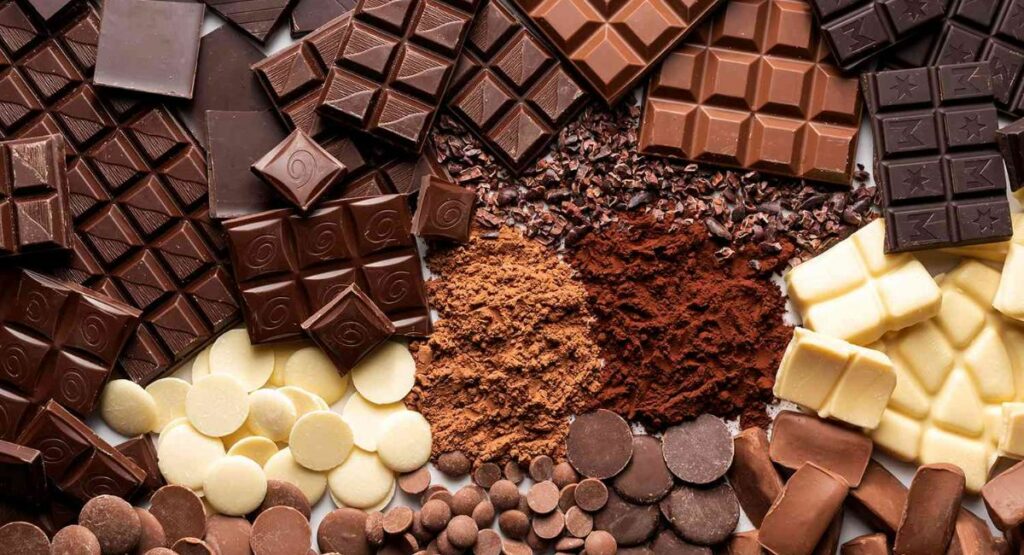
Chocolate has long been a source of debate when it comes to Halal or Haram. Many Muslims are uncertain as to whether chocolate is Halal, due to the fact that many types contain alcohol and pork derivatives.
The short answer is that most types of chocolate are considered Halal because they do not contain any ingredients prohibited by Islamic law, such as pork or alcohol. However, it is important to consider the individual ingredients of each chocolate product when determining its Halal status.
The first thing to look for when determining if a chocolate product is Halal is whether it contains any alcohol or animal products that are not permissible according to Islamic Law. Alcohol and pork derivatives are the most common Haram substances found in chocolate products.
For example, some chocolates contain liquor or liqueur-filled centres, which are not acceptable for Muslims to consume. Additionally, certain chocolates may have animal fats such as tallow listed in their ingredients list. Any product with these ingredients should be avoided if it is desired that the chocolate be Halal.
It is also important to ensure that the chocolate product has not come into contact with any other Haram substances during its production or storage. This includes checking the facility in which it was made and stored, as well as ensuring that the equipment used to package and store the chocolate has not previously been used for non-halal purposes.
Finally, when selecting a chocolate product, it is important to look for Halal certification on the package. This indicates that the product has been confirmed as meeting Islamic standards.
In conclusion, most types of chocolates are considered halal as long as they do not contain any haram ingredients and have been properly certified. It is important to check the individual ingredient lists and manufacturing practices when determining a chocolate’s halal status. With this in mind, Muslims can enjoy chocolates with peace of mind knowing that they meet Islamic standards.
However, it should be noted that despite being considered Halal, excessive consumption of chocolate should still be avoided as it can lead to health problems. Therefore, moderation is key when indulging in chocolate!
Related Reads:
Frequently Asked Questions (FAQs)
Is Lindt Chocolate Halal?
Yes, some of Lindt’s products are Halal certified. While not all of their products are Halal certified, they do have a range of chocolate bars and other treats that comply with Islamic dietary laws. This includes the Lindt Excellence Range, which is made from premium ingredients and crafted in Switzerland to ensure quality. The range is also free from animal-derived ingredients and additives so it can be enjoyed by everyone, regardless of their religious beliefs.
Is Merci Chocolate Halal?
Merci chocolate is generally considered halal. The company does not use any alcohol or pork products in any of its ingredients and its production process is certified as complying with Islamic dietary laws. Merci chocolates contain only plant-based ingredients, sourced mainly from Europe. These ingredients are all certified to meet the standards set by Islamic dietary laws, such as the avoidance of pork fats and alcohol. In addition, the company follows strict standards of hygiene and cleanliness in its production process, which ensures that Merci chocolates are produced in a manner compliant with Islamic dietary laws.
Is Royce Chocolate Halal?
Royce Chocolate is not certified as halal, however, the company does not use any animal products that are forbidden according to Islamic dietary laws. The primary ingredients in Royce’s chocolate bars are cocoa mass and sugar, both of which are considered acceptable for those who follow a halal lifestyle. Additionally, none of Royce’s products contains gelatin, which is an animal by-product that is not halal.
Is Galaxy Chocolate Halal?
Galaxy Chocolate is a well-known brand of chocolate produced by Mars, Incorporated. The company has been making high-quality chocolates since 1932 and is one of the largest chocolate manufacturers in the world. The question of whether Galaxy Chocolate is Halal can be quite complex as it depends on many factors such as where the product is being manufactured, the ingredients used and their sources, as well as any other non-food additives.
Is Mars Chocolate Halal?
Mars Chocolate is one of the most popular chocolate brands in the world, and for many Muslims, it’s important to know if their favourite chocolates are halal. The good news is that Mars has a wide range of products that have been certified as halal by the Islamic Food and Nutrition Council of America (IFANCA). This certification means that Mars Chocolate is free of pork, pork by-products, and alcohol, making it safe for Muslims to enjoy. Additionally, the company has strict policies in place to make sure all its products are made with only halal ingredients.
Conclusion
In conclusion, chocolate is generally considered to be halal when the ingredients are permissible according to Islamic dietary law. The main issue of concern for Muslims when consuming chocolate is to ensure that it does not contain any forbidden ingredients such as alcohol, gelatine, pork fat or pork-derived emulsifiers. When looking at a bar of dark, milk or white chocolate, it is important to read the label carefully and make sure that any animal-based products are certified halal.
Additionally, if unsure about an ingredient’s origin, it is best to consult with a reputable Islamic scholar who can provide sound advice on whether or not the product is considered halal. By following these guidelines, Muslims can confidently enjoy a delicious treat without worrying about whether or not it is permissible according to Islamic dietary law.
